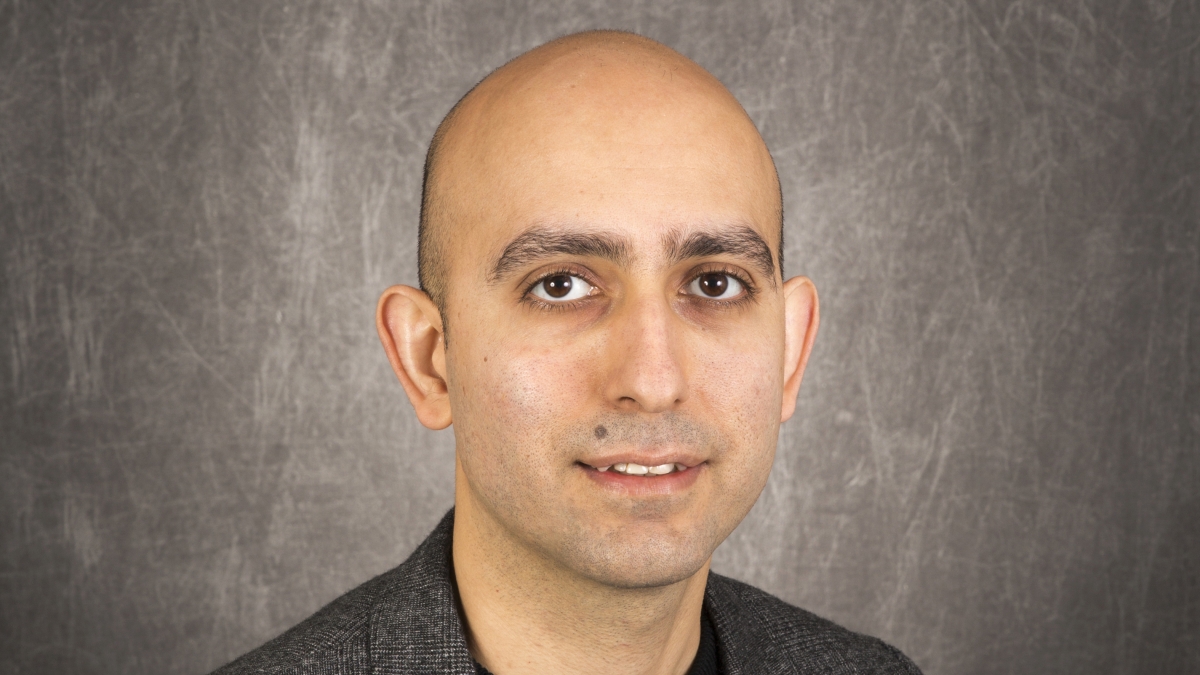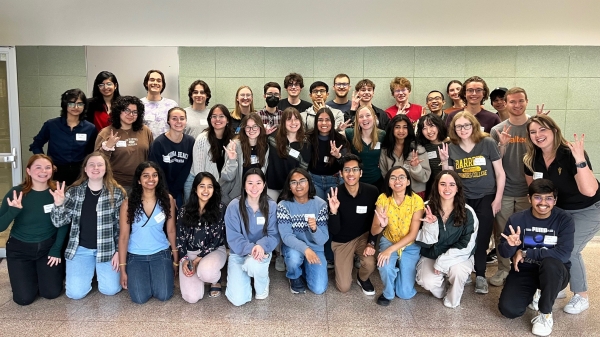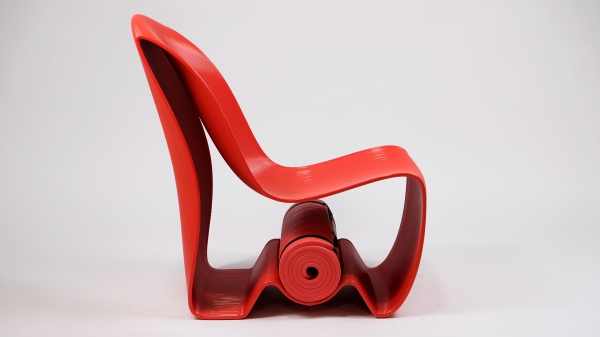ASU researcher earns recognition for regenerative engineering method using synthetic biology

Mo Ebrahimkhani, assistant professor of biomedical engineering in Arizona State University’s Ira A. Fulton Schools of Engineering and adjunct assistant professor of medicine at Mayo Clinic College of Medicine and Science.
Stem cells possess great potential for the study and treatment of disease. Scientists can use them to grow lab-created miniature organ-like tissues called organoids that have characteristics and behaviors similar to our own organs, which can help the development of personalized therapeutics.
Mo Ebrahimkhani and his research team have been developing a novel approach to engineering these organoids to advance the fields of organ transplantation, disease modeling and drug discoveries.
Rather than the traditional approach of externally introducing growth factors and developmental cues to stem cell cultures in the lab, Ebrahimkhani’s team engineers the process from the inside out — by genetically programming and guiding cells through developmental pathways that mimic how cells, tissues and organs develop naturally. This developmental process is known as morphogenesis.
The emerging field of engineering morphogenesis integrates engineering with developmental biology for better control of collective cell behaviors.
“This process of genetically engineered morphogenesis provides us with a powerful capacity to control when, where and how biological events should happen in cultures,” said Ebrahimkhani, an assistant professor of biomedical engineering in Arizona State University’s Ira A. Fulton Schools of Engineering and adjunct assistant professor of medicine at Mayo Clinic College of Medicine and Science.
Ebrahimkhani’s team — biomedical engineering graduate student Jeremy Velazquez, Johns Hopkins University Assistant Professor Patrick Cahan and his biomedical engineering doctoral student Emily Su — can achieve this through an innovative process of cell analysis, computational modeling and genetic engineering techniques.
This model of cell genetics can help explain how genetic information evolves into collective cell behavior and differentiation as well as tissue shaping and formation, which can lead to a new pipeline for cell and tissue bio-manufacturing for humans.
Together, the team is taking an innovative and interdisciplinary approach to integrating and converging the distinct areas of engineering and biology for potential breakthroughs in healthcare via programmable organoids.
Ebrahimkhani is the principal investigator in ASU’s Laboratory for Synthetic Biology and Regenerative Medicine and an expert in synthetic biology, genetic engineering and human stem cell-derived organoids.
“My team and I are very excited to be able to integrate synthetic biology and regenerative medicine to tackle pressing issues relevant to human health,” Ebrahimkhani said.
A paper on his ongoing research in collaboration with Cahan’s Johns Hopkins University team, titled “Programming Morphogenesis through Systems and Synthetic Biology,” was recently published in Trends in Biotechnology.
Ebrahimkhani says he is gratified to have the paper published in a leading journal with an in-depth focus on emerging areas in biologically oriented technologies — especially since it reaches a broad audience among leaders in academia, research, industry, clinical practice, government and nongovernmental organizations.
More Science and technology

Record number of ASU students selected for prestigious DAAD-RISE program
The Lorraine Frank Office of National Scholarships Advisement has announced that a record-high 34 Arizona State University…

ASU study identifies sex-based differences in physical aggression
Males are often more physically aggressive than females, whether it involves a school playground fight or assaulting another…

Industrial engineers develop new AI to elevate 3D printing
In the future imagined by Feng Ju, interior designers will have artificial intelligence, or AI, tools to create everything from…